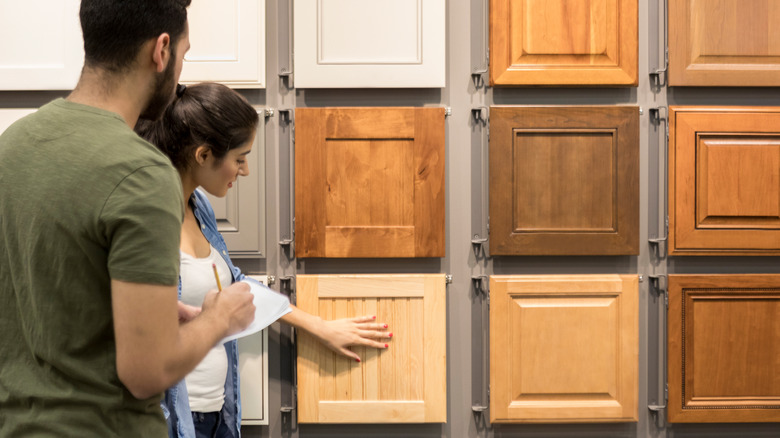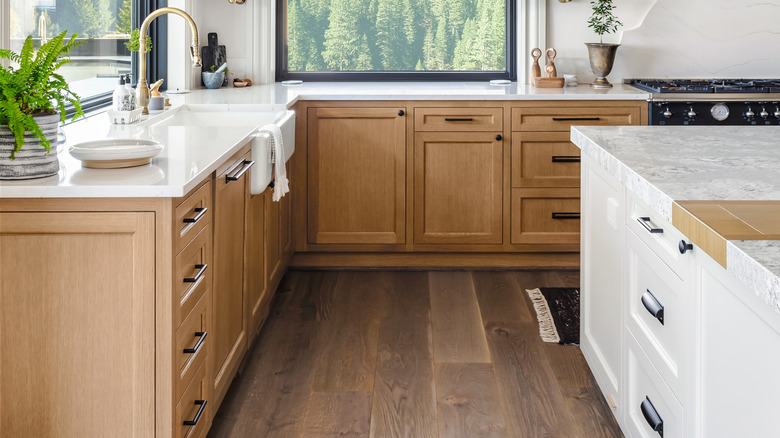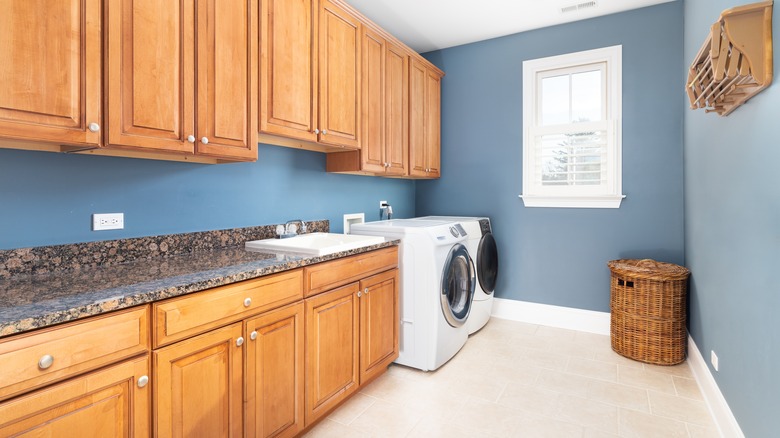Crucial Things To Consider Before Putting Hardwood Cabinets In Your Home
Selecting kitchen cabinets can be a big decision when remodeling or building a home. Design trends in cabinets are usually at the top of the consideration list, but you'll likely want them to last for years. Hardwood cabinets are one choice many homeowners contemplate when shopping around, but are they always the best option? There are several reasons you might find hardwood cabinets to be a perfect fit for your home, including their durability, but they can indeed be more costly than other alternatives, which is one of several drawbacks to ponder.
Essentially, hardwood (which can also be described as natural wood or solid wood) cabinetry is often made of oak, cherry, maple, or hickory using single pieces of wood. It's considered non-toxic since it's manufactured without the use of formaldehyde, which is found in some composite products such as particle board, so that's a big plus. Even so, deciding whether hardwood cabinets are the best choice depends on your budget and where they're being installed in your space. Looking at more of the pros and cons can help you determine if they're right for your household.
More good aspects of choosing hardwood cabinets
Even though color and stain trends come and go, hardwood cabinetry has long been a staple in homes. Many people consider hardwood cabinets to be naturally beautiful, and they can be stained and finished in a variety of ways. You can also re-stain hardwoods to breathe new life into dated cabinets. This isn't possible with other materials like laminated wood or particle board.
The durability of hardwood cabinets is also a key aspect in heavy-use areas since they don't dent or scratch easily. Using scratch-cover furniture polish on hardwoods is also an option you can consider when a little wear to the finish does occur. Another bonus is that they're easy to clean by wiping them down with dish soap mixed with hot water. If you need a little more grease-cutting power, using Murphy Oil Soap is another alternative that won't damage hardwood cabinets when following package instructions.
In addition to being manufactured without chemicals that pollute indoor air, wood is also a sustainable choice since a new tree can be planted when one is cut down. You can take that one step further by choosing hardwood cabinets made with reclaimed wood or lyptus, a fast-growing tree that meets sustainable standards for forestry.
Reasons to reconsider hardwood cabinets
When budget is a major consideration, it's important to keep in mind that hardwood cabinets usually cost more than engineered wood products, like particle board or laminates. That makes them seem less attractive when you need to reserve funds, although the alternatives probably won't last as long in a heavy-use household.
Hardwood cabinets can also be susceptible to water damage. Most of the time, you can just wipe up spilled liquids quickly without an issue, but if you install them in an area where they get drenched over and over with dishwater or where water is prone to overflow, they can absorb moisture and sustain damage. This happens most frequently when wood cabinetry is not sealed.
Humidity levels can also impact hardwood cabinetry. High humidity can lead to warps and cracks; low humidity can also be an issue causing cracking and shrinkage. Temperature extremes can cause the same types of damage. Running an HVAC system usually eliminates these concerns, but these are still issues to be aware of when selecting a cabinet material. Taking all the favorable aspects and these potential pitfalls into consideration can help you decide if hardwood cabinets are right for your home.


